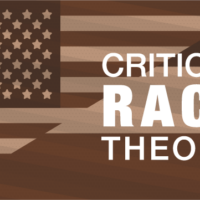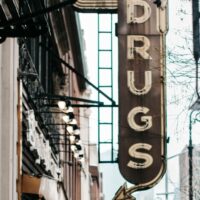America’s Legal Narcotics Cartel
So now we know how Prince died. Guess that wasn’t all that big a surprise, now was it? Guy was popped up on more pain pills than a rhino at the zoo after knee surgery. It’s a bad sign when you are in your own home and you are carrying your oxycontin pills in your bathrobe for easy access. Opiates are a long precipitous decline to one’s inevitable demise, but hey, at least you’re too unconscious to really mind the bumps along the ride.
To suggest opiate use is on the rise in the United States would be a vast understatement on the order of suggesting that Kanye West likes himself some Kanye. The numbers are truly staggering. We represent 5% of the world’s population, and yet we represent a whopping 75% of pharmaceutical opiates consumption world wide. In 1991, doctors wrote 76 million prescriptions. By 2011, that number had nearly tripled, to 219 million, according to a report from the National Institute on Drug Abuse. That’s almost as many opiate prescriptions as there are grown adults in the United States. Either we are in a lot of pain in America, or we are seriously over-medicating our sorrows. Shoot, we even have commercials now for opioid induced constipation (or “O-I-D”, as the marketing team so delightfully puts it). We’re taking so much of this stuff, we can’t even take a bowel movement anymore.
Now for the moment, let’s leave street-purchased heroin out of this, even though that really is what we are talking about here: these prescribed opiates are just pharmaceutically produced heroin sanctioned by a complicit government that scarfs down Big Pharma lobbying money like wailing coyotes around a fresh corpse. The numbers I want to look at for right now are for the legal drug trade, the one our government sanctions with an all-too willing hand. In the last fifteen years, legal opioid deaths have gone from less than five thousand annually to nearly twenty thousand deaths a year. That is a 369% increase since 1999 alone. Cocaine used to be the leading drug killer in our nation, but that was so 80’s. Opioids kill three times more people now than any other drug you get out on the street.

And why not? All you need is a doctor willing to give you a prescription (and with 220 million prescriptions for this stuff a year, I’m going to go out on a limb and say that that shouldn’t be too difficult regardless of what condition you may or may not have), and the government will let you take as much of this crap as the doctor will give you. You know what they call that? A drug deal. Doctors are just your buddies hooking you up with the beeper number for your connection: the sleazy drug companies peddling you whatever they can get you hooked on.
Meanwhile, a plant that grows out of the ground organically and has been proven to have the same medicinal impacts and pain-management effects as the hard stuff the drug companies are pawning off on us- that, of course, is still illegal, even for medical use, in roughly half of the United States. Listen, I’m not going to sit here and suggest that marijuana has no deleterious health effects, especially when consuming it through smoking it, but c’mon how many people are overdosing on weed? I have yet to hear of a glaucoma patient that smoked themselves to death. I live in Colorado, and it’s a big deal when one dumb ass kid eats too much of a pot cookie and throws himself out a window, for crying out loud. That’s happening sixty times a day from the legally-approved drugs that doctors are prescribing. But we don’t hear about that, do we?
And we all know why: money. One of these forces is represented by a powerful lobbying industry bankrolled by corrupt drug makers; the other has traditionally been made up of stoned hippies who made their points by vocalizing them decisively during debates with friends in the bedrooms of their parents’ basements. Opiates are not legal because they are more effective or have fewer side effects. They are legal because Big Pharma can pay the surcharge of doing government business, otherwise known as lobbying.
But to some degree, that is changing. While I have generally been opposed to big business coming in and squashing out local producers and entrepreneurs in the burgeoning marijuana business, the silver lining of that inevitability has been that the industry has created an economic ability and future profit motive viability to spur a lobbying force for marijuana legalization. As the states of Colorado and Washington have proven: there is money to be had in the weed business. And as long as there is, there will be someone willing to pay a lobbyist to make it happen.
So marijuana is going to get its own lobby, which probably means that it will be coming to a town near you someday soon. Yay, legal weed, Americans! For those of us in Colorado, that will be something of a disappointment. We kind of liked being the only sane state in the nation.
Steven Craig is the author of the best-selling novel WAITING FOR TODAY, as well as numerous published poems, short stories, and dramatic works. Read his blog TRUTH: in 1000 Words or Less every TUESDAY and FRIDAY at www.waitingfortoday.com








